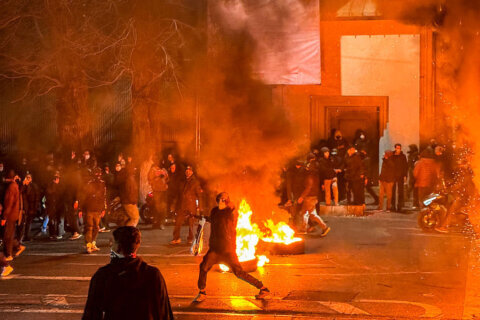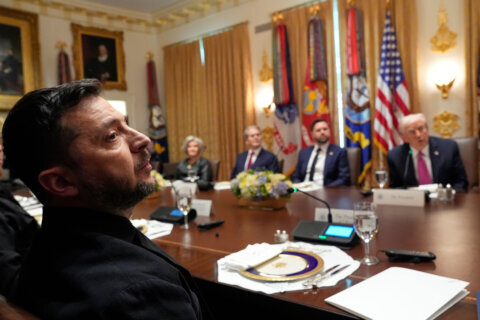On Tuesday afternoon, a Russian-built Ilyushin Il-96-300, from the Russian government’s fleet of aircrafts, landed at Dulles International Airport in Northern Virginia.
It was not an unprecedented event, but some of the related details don’t add up.
Russian Foreign Ministry spokeswoman Maria Zakharova said the plane “will take out Russian diplomats who were ordered by the U.S. authorities to leave the country in connection with the completion of a three-year stay.”
But questions arose about the size and type of plane, allegedly sent to retrieve only diplomats.
State Department spokesman Matthew Miller, when asked about it on Tuesday, responded, “I’m not going to speak to the exact numbers. I’ll let the Russian Federation decide whether they want to speak to the number of what are, of course, their diplomats. I’d say diplomatic personnel routinely rotate in and out of assignments. That’s what happened here.”
But is that really what’s happening? A former covert U.S. intelligence operative is suspicious.
“Normally, if you’re just sending diplomats out of the country, like Russian diplomats, you just put them on a commercial plane, with whatever connection they need to get to Moscow,” said Robert Baer, a retired CIA field operative.
Baer, with deep knowledge of Russian intelligence and military activities, suspects that this movement is not routine at all. The 15-year-old plane, registered as RA-96018 and operating with flight number RSD898, is indeed capable of carrying hundreds of people.
But Baer said it’s also the perfect vessel for a large quantity of spy equipment: “If you’re moving out intercept equipment, computers, hard drives, blade servers, all that stuff, you’d ask for a Russian government airplane.”
It’s unclear who or what cargo will make the return flight to Russia, but Miller said the U.S. expects in-kind treatment, which adds to the intrigue.
“In exchange for granting these courtesies, we expect Russia to maintain open transport for our diplomats and cargo to our embassy in Moscow,” Miller said.
Suspicions about the purpose of the plane are directly linked to the aborted Wagner rebellion on June 23 against Russian President Vladimir Putin.
Staged by Yevgeny Prigozhin and his private army, the mutiny has sparked fear, according to sources inside Russia, that generals may have planned to join Prigozhin in an attempt topple Putin.
Much of what triggered the now bitter break-up between Putin and Prigozhin is unknown. The failure of the Russian military to adequately supply his army in Ukraine, and an alleged direct Russian military attack on his fighters, are the reasons Prigozhin gave.
But Estonian and longtime Russia-watcher, Eeva Eek-Pajuste, director of the Lennart Meri Conference, believes the true cause is something much more profound: “Most probably, both Putin and Prigozhin consider the other to have broken the terms of contracts between them.”
Eek-Pajuste said Prigozhin had been given two choices.
“Let the remnants of his forces be killed by Ukrainians, with the silent approval of the Russian army, who detest Wagner; or, let them to be dispersed into the Russian army, to be sent to the nastiest places, to be killed by Ukrainians. So, he was desperate and took desperate action, to try to fight out of a hopeless situation.”
As a result, Prigozhin is now effectively exiled to Belarus. It’s possible punishment from Putin for openly challenging him, and something that usually leads to execution — consorting with the enemy.
Baer believes the Kremlin and its intelligence apparatus are convinced the U.S. was involved and tried to help Prigozhin: “Putin’s got a military he can’t be sure of and he’s conspiratorial and he does believe that the United States is behind this.”
Baer believes it could be the beginning of an unprecedented rough patch between the two nations and perhaps Putin’s downfall.
“I think the situation is so bad in Russia that (Putin’s) days are numbered. You simply don’t take a big swipe at his authority, like a column moving on Moscow and getting to within five or six hours (of the city), and any good come out of it.”
Eek-Pajuste said Putin has a lot at stake and needs to limit the damage: “If Putin loses his tough guy image, and it’s very shaky now, how much leverage does he have?”
The flight to D.C. four days after Putin nearly lost power suggests, to some, that it didn’t just come here to pick up people, but perhaps to pick up some very sensitive intelligence equipment before it’s too late.








